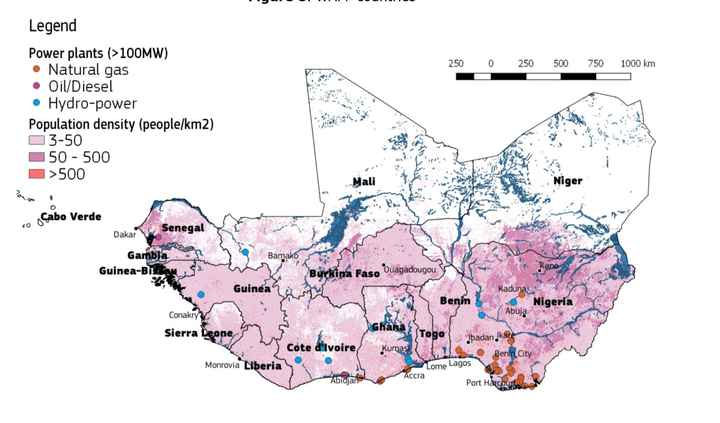
Abstract
The operation and economics of the power systems are constrained by the availability and temperature of water resources since thermal power plants need water for cooling and hydropower plants are fuelled by water to generate electricity. In Europe and North America water shortages or high river water temperatures have recurrently occurred in the last years, leading to financial losses, power curtailments, temporary shutdowns, demand restrictions, and ultimately increased wear and tear of the power plants. On the other hand, the operation of the power system may impact on the quantity and quality of the water resources. The combined effect of increased water consumption, for energy and non-energy purposes, with lower availability of water resources due to climate change is expected to lead to similar problems in Africa. In most African energy systems hydropower is the dominant renewable energy source, but they rely heavily on oil- and gas-fired capacity, and lack interconnections with neighbouring countries. This technical report describes the modelling framework developed by the JRC for analysing the water-power nexus, the input data and assumptions, the results of two scenarios for the West African Power Pool (WAPP), and conclusions derived from the analysis. The results show that the proposed model behaves soundly, despite the data-related limitations, replicating the available statistics up to a great extent. Furthermore, the simulation was able to provide hourly time-series of electricity productions at plant-level in a robust way, since that the modelling is based on long time-series of climate data. We show that currently the operation of the WAPP power system significantly depends on the availability of water resources, not only for the use of hydro-power generation but also for the cooling of thermal power plants. This dependence translates into a high volatility of the system cost which would be reduced by the thermal capacities scheduled to be commissioned in the WAPP in the near-future. As a consequence, in the long term, the dependence of the power system on water resources could become even more important to meet the increasing electricity demand in the WAPP